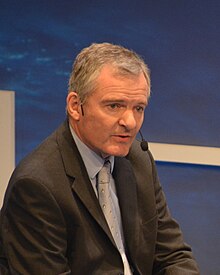
Albert Paddock Crary, was a pioneer polar geophysicist and glaciologist. He was the first person to have set foot on both the North and South Poles, having made it to the North Pole on May 3, 1952 and then to the South Pole on February 12, 1961, as the leader of a team of eight. The South Pole expedition set out from McMurdo Station on December 10, 1960, using three Snowcats with trailers. Crary was the seventh expedition leader to arrive at the South Pole by surface transportation. He was widely admired for his intellect, wit, skills and as a great administrator for polar research expeditions.

Sir Vivian Ernest Fuchs was an English scientist-explorer and expedition organizer. He led the Commonwealth Trans-Antarctic Expedition which reached the South Pole overland in 1958.

The Scott Polar Research Institute (SPRI) is a centre for research into the polar regions and glaciology worldwide. It is a sub-department of the Department of Geography in the University of Cambridge, located on Lensfield Road in the south of Cambridge.
The International Arctic Science Committee (IASC) is a non-governmental organization which is composed of international science groups participating in arctic science research. IASC is an International Scientific Associate of ICSU, and was established in 1990. IASC's main aim is to initiate, develop, and coordinate leading edge scientific activity in the Arctic region, and on the role of the Arctic in the Earth system. It also provides objective and independent scientific advice to the Arctic Council and other organizations on issues of science affecting the management of the Arctic region. The decision-making organs of IASC are the Council and the Executive Committee. The day-to-day operations are supported by its secretariat headed by the executive secretary. IASC's geographical remit covers the Arctic Ocean and the surrounding landmasses.
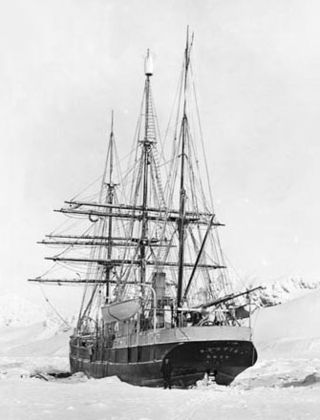
The Scottish National Antarctic Expedition (SNAE), 1902–1904, was organised and led by William Speirs Bruce, a natural scientist and former medical student from the University of Edinburgh. Although overshadowed in terms of prestige by Robert Falcon Scott's concurrent Discovery Expedition, the SNAE completed a full programme of exploration and scientific work. Its achievements included the establishment of a staffed meteorological station, the first in Antarctic territory, and the discovery of new land to the east of the Weddell Sea. Its large collection of biological and geological specimens, together with those from Bruce's earlier travels, led to the establishment of the Scottish Oceanographical Laboratory in 1906.

Nils Otto Gustaf Nordenskjöld was a Fenno-Swedish geologist, geographer, and polar explorer.

Sir James Mann WordieCBE FRS FRSGS LLD was a Scottish polar explorer and geologist. Friends knew him as Jock Wordie.
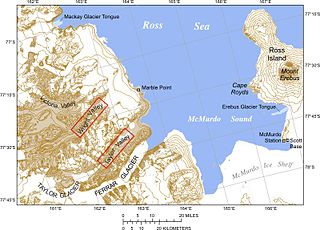
The Erebus Ice Tongue is a mountain outlet glacier and the seaward extension of Erebus Glacier from Ross Island. It projects 11 kilometres (6.8 mi) into McMurdo Sound from the Ross Island coastline near Cape Evans, Antarctica. The glacier tongue varies in thickness from 50 metres (160 ft) at the snout to 300 metres (980 ft) at the point where it is grounded on the shoreline. Explorers from Robert F. Scott's Discovery Expedition (1901–1904) named and charted the ice tongue.
Tavi Murray, FLSW is a glaciologist, the eighth woman to be awarded the Polar Medal.

John Riddoch Rymill was an Australian polar explorer, who had the rare second clasp added to his Polar Medal.

Ushakov Island is an isolated island located in the Arctic Ocean, Russian Federation.
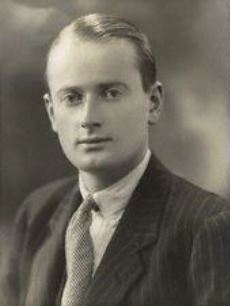
Henry George "Gino" Watkins FRGS was a British Arctic explorer and nephew of Bolton Eyres-Monsell, 1st Viscount Monsell.
Charles Winthrop Molesworth Swithinbank, MBE was a British glaciologist and expert in the polar regions who has six places in the Antarctic named after him.
Stig Valter Schytt was a Swedish glaciologist.
Terence Edward Armstrong was a British polar geographer, sea ice specialist, writer, and expert on the Russian Arctic.

Surgeon Captain Edward W. Bingham, was a British Royal Navy officer and polar explorer who had the rare third clasp added to his Polar Medal.
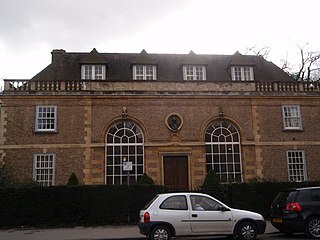
Dr George Colin Lawder Bertram, generally known as Colin Bertram, was a British zoologist.
Ernest Frederick "Fred" Roots was a Canadian geologist, polar explorer, educator and public servant. After graduating with undergraduate and master's degrees in geology from the University of British Columbia and a doctorate from Princeton University, Roots joined the Scott Polar Research Institute and was appointed Chief Geologist for the 1949 to 1952 Norwegian–British–Swedish Antarctic Expedition. During the expedition, in addition to ground-breaking geological and glaciological research studies, he made a 189-day, unsupported dog sled journey across the continent; a record that still stood at the time of his death over six decades later. On his return to Canada he joined the Geological Survey of Canada with whom he served as a field geologist until 1958, when he left to help found the Polar Continental Shelf Program. After 14 years with PCSP, Roots left to act as science advisor to the newly created federal Department of the Environment, where he remained on staff until 1989. After retirement, Roots remained an active participant in polar research, and also became a key mentor within the Students on Ice educational program. He continued to participate in expeditions for Students on Ice well into his tenth decade, his last being to Greenland only two months before his death.
The Weddell Sea Expedition 2019 is a 45 day expedition to the Weddell Sea, in Antarctica, that seeks to study the glaciology and biology at and near the Larsen C ice shelf. It will be the first expedition to investigate the area that Iceberg A-68 broke away from in July 2017.

Felix König was an Austrian scientist, alpinist and Antarctic explorer. He was a member of Wilhelm Filchner's Second German Antarctic Expedition, 1911–13, which failed in its attempt to determine the nature of the link, if any, between the Weddell Sea and the Ross Sea, and thereby resolve the question as to whether the continent was a single landmass or a group of several elements. In the course of the expedition König, along with Filchner, was part of the group, that disproved the existence of the land known as New South Greenland, or "Morrell's Land", supposedly discovered in 1823 by the American sealer captain, Benjamin Morrell.
